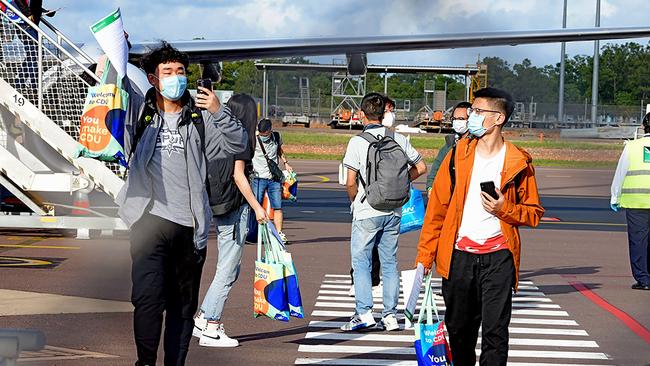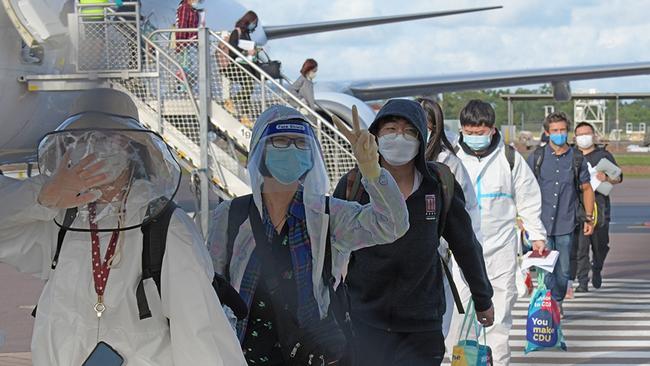Reprisals from China pose risk for universities
It would be relatively simple for Beijing’s wolf warriors to use its internet firewall to block access to Australian online courses, with devastating impact.

As Australia’s relations with China plummet to a 50-year low, universities face the possibility of a devastating financial impact if Chinese students do not return when travel bans are lifted.
Universities, particularly the elite Group of Eight where most Chinese students study, are relying on rebuilding student enrolments from China, which reached 164,000 in 2019 before COVID-19 hit.
In 2019, universities earned more than $7bn in student fees from China, and they fear that if Australia-China relations continue to deteriorate this revenue could be lost permanently.
There would also be major losses to the broader economy if Chinese students do not return. In the 2018-19 year, Chinese students spent $12.2bn in Australia in total, including student fees and living costs such as food, accommodation and transport.
READ MORE:How to deal with Beijing blowback | Thumbs down for remote learning | $10m gift for UNSW | New chief for humanities academy
So far the Chinese government has concentrated its trade retaliation against Australia in the goods area.
But it would be relatively simple for Beijing to interrupt the student market if it chose.
The latest federal government figures show that at least 62,000 Chinese students are currently studying online from overseas in Australian education institutions.
Nearly all these students are enrolled in higher education and their fees are helping Australian universities weather the devastating financial impact of the COVID-19 travel bans on the international student industry.
But their ability to study online relies on the Chinese government allowing Australian online education courses through China’s internet firewall, and this access could be closed arbitrarily.
Universities also want to be able to enrol new students from China when travel restrictions are eased. In 2019, more than 65,000 Chinese higher education students commenced courses in Australia, and universities would ideally like to welcome new students from China in the second semester of 2021.

However it would be a simple thing for the Chinese government to either halt, or restrict, the movement of students to Australia if it chose.
International Education Association of Australia CEO Phil Honeywood said he was optimistic the worst would not happen.
“We are hopeful that the long established people-to-people links (with China) will ensure that commonsense prevails,” he said.
He also pointed to other relationships which Australian universities have with Chinese counterparts in research and short-term student and academic exchange which bring value to both sides.
A new survey from education company Navitas showed that Australia’s success in taming COVID-19 was not translating into an advantage in attracting international students.
The September survey of nearly 300 education agents in 54 countries found that, compared with Australia, perceptions of the UK as a student destination have risen sharply.
Unlike Australia, the UK has remained open to international students entering the country.
“Students are looking at ‘where can I actually get to’,” said Jon Chew, Navitas’s head of strategic insights and analytics.
In contrast, the survey found that the reputation of the US as a student destination is very low.




To join the conversation, please log in. Don't have an account? Register
Join the conversation, you are commenting as Logout